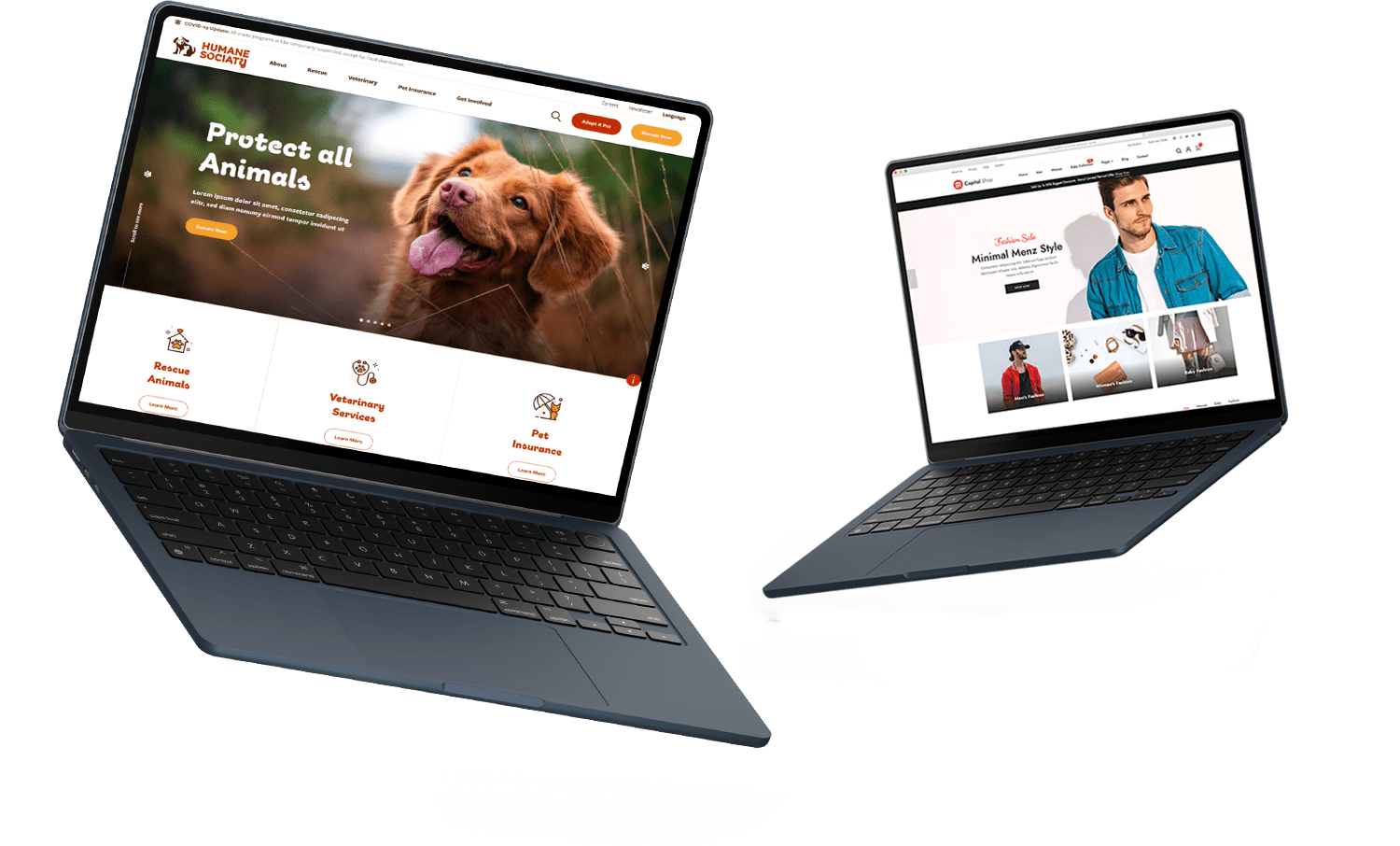
Sometimes, we all feel like we have less control over SEO when compared to other marketing channels, including paid search. Organic search is a very precise marketing channel, and even if they seem expensive, they might be the right choice to invest in.
The true power of search engine marketing lies not in quick wins but in its lasting, long-term impact. Unlike paid ads that disappear the moment you stop spending, SEO keeps working, driving targeted traffic and potential customers your way. And if you're not able to calculate SEO ROI properly, you might be missing out on its true value.
Either way, it’s important to keep a note of SEO return on investment (ROI), measuring the ROI of SEO will put it right in perspective. You can use many parameters or metrics to find out the real success of search engine optimization(SEO). However, to determine the right value for your following campaigns, calculating SEO ROI is a prerequisite.
What Is SEO Return On Investment (ROI)?
So when we are about to calculate SEO ROI, we see that it is the calculation that measures the return on investment of search engine optimization. Honestly talking, it is one of the most important concerns for any organization or individual. After all, if you’re spending time and money on SEO, you want to know if it’s paying off
And by measuring the ROI of SEO, you can make a more informed decision about your marketing expenses and budget. By understanding what’s working and what’s not, you can double down on strategies that drive real results while ensuring your investment keeps paying off in the long run.
Looking to create an animation that truly captivates your audience?
We’re here to bring your vision to life! Let’s work together to make something unforgettable!
Get Started!
Why Is It Essential To Calculate SEO ROI?

If you’re spending money on SEO, you should know exactly where it’s going and what you’re getting in return. Understanding your SEO ROI doesn't just crunch numbers, instead, it allows you to make smarter decisions by proving the value of your efforts, and maximizing your budget.
-
Convincing Decision-Makers
Numbers speak louder than words! And when you can show clear dollar-value returns on your SEO efforts, it’s much easier to get buy-in from company leaders. Now it can be an increased organic traffic, higher conversion rates, or more leads, proving ROI makes a strong case for continued investment in SEO.
-
Optimizing Your SEO Strategy
Not all SEO efforts bring in the same results, some pages drive tons of traffic but don’t convert, while others bring in high-value leads. By calculating SEO ROI, you can identify which strategies, keywords, and pages are making the biggest impact. This way, you can double down on what’s working and cut what’s not, saving time and money.
-
Tracking Long-Term Success
SEO isn’t a one-and-done deal. It’s an ongoing process, and results take time. Without measuring the ROI of SEO, you might not see the bigger picture. Therefore, tracking SEO performance over months or even years helps you understand trends, adjust your approach, and make better long-term decisions for sustainable growth. At the end of the day, SEO isn’t just about ranking high on Google, it’s about driving real business results.
Methods Of Measuring The ROI For SEO

Investing in SEO is a smart move, but finding out if it's actually paying off, that’s where SEO ROI (Return on Investment) comes in. Understanding how to measure your SEO success helps you make better decisions, optimize your strategy, and prove to decision-makers that SEO is a worthwhile investment.
But here’s the thing, SEO ROI isn’t always straightforward. Unlike paid ads, where you can track immediate conversions, SEO is a long-term game. Results take time, and measuring the ROI of SEO depends on factors like traffic, leads, and cost savings.
Also, if you’re wondering how to calculate SEO ROI for your business, don’t worry! And it doesn’t matter if you have direct conversion data or not, there are multiple ways to measure the impact of your SEO efforts. Let’s break it all down.
-
Using Conversion Data
The most straightforward way to measure SEO ROI is by tracking actual conversions, now they can come from product sales, lead generation, or sign-ups.
If you have an eCommerce site or track lead conversions, tools like Google Analytics and seoClarity can help you determine the monetary value of these conversions. Once you have that number, you can use a simple formula to calculate SEO ROI:
SEO ROI Formula =
(Revenue from SEO − SEO Costs) / SEO Costs × 100
For example:
- Your SEO efforts generate $50,000 in revenue in a given period.
- You spent $10,000 on SEO services during that time.
- Your SEO ROI would be: ($50,000 − $10,000) / $10,000 × 100 = 400%
That means for every dollar spent, you’re making four times the return, which is a solid win!
-
Using Traffic Data
Finding out that you don’t have direct conversion tracking in place can be stressful, but no worries! Because you can estimate your SEO ROI based on traffic value instead.
Think of it this way: if your website didn’t rank in search engines, you’d have to rely on paid ads to get the same amount of traffic. So, one way to measure SEO ROI is by calculating how much your organic traffic would have cost in paid search (PPC).
Estimation:
- Use SEO tools like seoClarity, Ahrefs, or SEMrush to find out how much organic traffic your site gets.
- Look up the average cost-per-click (CPC) for keywords your website ranks for.
- Multiply the number of organic visits by the CPC.
Example:
- Your website gets 10,000 organic visits per month.
- The average CPC for your industry is $2 per click.
- The estimated traffic value is: 10,000 × $2 = $20,000.
That means if you had to pay for that traffic through Google Ads, it would cost you $20,000 per month.
So even if you’re not tracking direct sales, you can still showcase the value of SEO by comparing it to what you would have spent on ads.
-
Measuring Cost Savings
SEO isn’t just about how much money you make, it’s also about how much you save.
Paid advertising can be expensive, especially for competitive industries where CPC rates are high. By ranking organically in search engines, you reduce your reliance on paid ads and save money on marketing costs.
Calculating Method:
- Identify how much your business typically spends on PPC, social media ads, or influencer marketing to drive traffic.
- Compare it to your SEO-generated traffic.
- The difference is the amount of money you’re saving through SEO.
For instance:
If your business previously spent $15,000 per month on Google Ads but now generates the same traffic organically, you’re effectively saving $15,000 every month! That’s a huge cost reduction that should be factored to calculate SEO ROI.
-
By Tracking Specific Projects
SEO isn’t just about tracking overall performance, it’s also important to measure ROI for specific projects and campaigns.
For example, you might want to know if:
- Updating page titles and meta descriptions improved rankings.
- Adding new content boosted organic traffic.
- Removing old or duplicate content helped SEO performance.
-
By Analyzing ROI for SEO Campaigns
Use tags in SEO tools (like seoClarity) to track changes for specific pages.
Compare performance before and after the SEO update.
Measure improvements in traffic, engagement, and conversions.
If you’re managing thousands of pages, AI-powered tools can help bulk-tag and track performance across large-scale SEO efforts—saving you time while delivering accurate insights.
-
Through Estimating Conversions
Let’s say your website is fairly new, and you’re not seeing many conversions yet. How can you still calculate SEO ROI?
One method is to use conversion rates from paid search (PPC) as a benchmark.
How It Works:
- Find out your conversion rate from paid search. Let’s say it’s 10%.
- Determine the value of each conversion. For example, if one sale or lead is worth $2,000.
- Apply these numbers to estimate organic conversions.
Example Calculation:
- Your website receives 1,000 organic visits per month.
- Based on your PPC conversion rate (10%), you estimate 100 conversions.
- If each conversion is worth $2,000, then: 100 × $2,000 = $200,000.
That means your estimated revenue from organic search would be $200,000. Even if you don’t have exact numbers, this method gives you a solid estimate of SEO’s potential impact.
Want a Web Design That Stands the Test of Time?
Let our expert team help you create something truly lasting!
Let’s Talk!
Why Calculating SEO ROI Isn’t as Simple as It Seems?

So, you’ve invested in SEO, and now you’re worried that it won't pay off. Unlike paid ads, where you can easily track how much you spend and what you get in return, SEO is a whole different game. It’s a long-term strategy, influenced by tons of factors, and measuring the ROI of SEO isn’t exactly a walk in the park.
-
Which Channel is Really Delivering Results?
One of the trickiest parts of measuring the ROI of SEO is isolating the true impact of your efforts. SEO doesn’t work in a vacuum, it’s intertwined with other marketing strategies like paid ads, social media, email campaigns, and even word-of-mouth.
For example, let’s say your website traffic is booming. Now it can be a mix of your efforts! Now, pinpointing exactly how much of your success is from SEO alone can be challenging, but tools like Google Analytics can help. You can track organic traffic, keyword rankings, and assisted conversions to get a clearer picture of SEO’s contribution.
-
SEO Takes Time (And Patience!)
Unlike paid ads, where you can see results almost instantly, SEO is a slow burner. It can take months, sometimes even a year, to see the full impact of your efforts.
Now, imagine you optimize a page today. Google won’t just push it to page one overnight. It needs time to crawl, index, and rank your page based on competition, content quality, and backlinks. That makes it tough to connect the dots between the work you did and the results you’re seeing later down the line.
A great way to track progress over time is by setting up monthly reports on keyword movements, organic traffic growth, and conversion trends. That way, you can gradually see how SEO is making a difference.
-
Google Keeps Changing the Rules
Just when you think you’ve cracked the SEO code, Google updates its algorithm, again. Rankings shift, traffic fluctuates, and suddenly, your once-perfect SEO strategy needs adjustments.
Because of these frequent changes, it’s hard to measure ROI consistently. A website that ranks on page one today might drop to page two next month, even if nothing major changed. These ups and downs make it difficult to get a steady, reliable ROI calculation.
The best way to deal with this is to stay updated on Google’s algorithm changes and focus on long-term, white-hat SEO strategies like high-quality content, strong backlinks, and solid user experience.
-
Tracking Offline Conversions? Good Luck with That
SEO doesn’t just drive online sales and leads; it also sends customers to physical stores, phone calls, and consultations. But here’s the problem: how do you track those offline conversions?
For example, let’s say someone finds your website on Google, checks out your services, then walks into your store and makes a purchase. SEO played a role in that sale, but unless they mention, “I found you on Google,” there’s no easy way to track it.
One way to work around this is by using call tracking, unique landing pages, or store visit tracking tools in Google Analytics. Some businesses even ask customers directly: “How did you hear about us?” (Simple, but effective!)
-
Not Everything About SEO is Measurable in Dollars
SEO isn’t just about revenue, it also builds brand awareness, trust, and credibility. Even if someone doesn’t buy from you today, they might remember your brand later and become a customer down the line.
However, putting a number on it can be difficult, measuring things like brand recognition, engagement, and trust is tough because they don’t always translate directly into sales.
A good workaround is tracking things like:
- Branded searches (how many people search for your company by name?)
- Social media mentions (are people talking about your brand more often?)
- Customer retention (are past visitors coming back to your site?)
While these aren’t traditional ROI metrics, they show how SEO helps in ways that go beyond revenue.
The Final Verdict
As I’ve said before, SEO isn’t an easy piece, however, it is the most impactful marketing channel. But, the truth is that it's the most underrated and underfunded.
And with all that said, understanding your SEO ROI can help you make the right choices with your marketing budget.
-
Key Differences in Strategy
You can think of content marketing like writing a great book, you take your time to craft, write your ideas carefully, create something that is informative and engaging.
On the other hand, social media marketing is like hosting a live Q&A or attending an online chat with friends. And in this realistic chat, you can have spontaneous conversations that drive deeper connections with your audience.
-
Content Longevity
One key difference is the longevity of content. Because content marketing pieces like blog posts or videos, have a longer shelf life. They continue to attract and nurture leads over time. You might publish a blog today, and months down the line, that same post could still be driving traffic.
Social media, however, operates in bursts. A post may get a lot of attention when it’s first shared, but after a few hours or days, its impact often starts to fade.
Of course, social media is great for keeping your brand top-of-mind and capitalizing on trends. However, the content itself isn’t usually as evergreen as the material you create for a content marketing strategy.
-
Measuring Success
Another big difference is how you measure success. Content marketing metrics focus more on things like page views, time spent on page, lead generation, and conversions. You’re tracking how well your content is doing in terms of driving real business results.
Social media marketing, though, measures things like engagement (likes, comments, shares), impressions, and follower growth. It’s more about tracking how your brand is being received, and how well you’re interacting with your audience.
Frequently Asked Questions (FAQ’s)
-
Why is calculating SEO ROI so tricky?
SEO isn’t like paid ads where you can see instant returns. It’s a long-term game, and measuring the ROI of SEO and its exact impact can be tough. There are multiple factors at play, like search engine algorithm updates, external market trends, and even offline conversions.
-
How do I start calculating my SEO ROI?
The basic formula is simple: (Revenue from SEO - SEO Costs) / SEO Costs x 100 = ROI (%). The tricky part is defining “revenue from SEO.” If you run an eCommerce site, track revenue from organic sales. If you're a service-based business, look at the value of leads generated through organic traffic.
-
What if I don’t have direct conversion data?
No problem! You can still estimate SEO ROI with a few clever methods. Think about how much you'd spend on PPC for the same traffic, assign a dollar value to your organic leads based on conversion rates, or track keyword ranking improvements and estimate how they translate into revenue.
-
How long does it take to see ROI from SEO?
Unlike paid ads, SEO is a slow burn. It usually takes 3-6 months to start seeing noticeable improvements and 6-12 months for significant ROI. However, this depends on factors like competition, industry, and the quality of your SEO strategy.
-
Can SEO ROI include money saved, not just earned?
Absolutely! A big chunk of SEO ROI comes from cost savings. For example, if your organic traffic replaces paid search traffic, you save money on PPC costs. A well-optimized site can also lower bounce rates and increase conversions, indirectly boosting revenue.
-
What tools help with tracking SEO ROI?
You’ll need the right tools to make SEO ROI tracking a breeze. Google Analytics and Search Console help with organic traffic and keyword tracking, while platforms like Ahrefs, SEMrush, Moz, and seoClarity estimate traffic value and rankings. If you're focused on leads and sales, CRM tools like HubSpot and Salesforce will keep you covered.
-
What’s the biggest mistake businesses make in SEO ROI tracking?
One of the biggest mistakes businesses make when tracking SEO ROI is focusing too much on rankings and traffic instead of actual revenue impact. High rankings and traffic look great on paper, but they don’t necessarily mean your SEO is driving real business growth.








